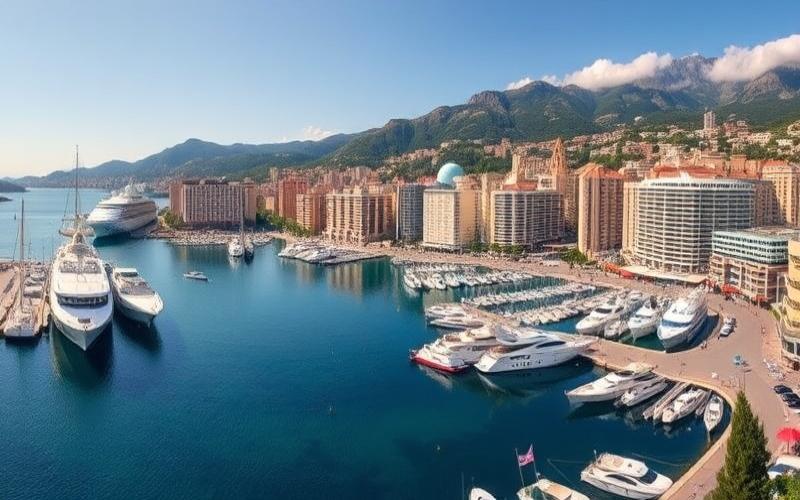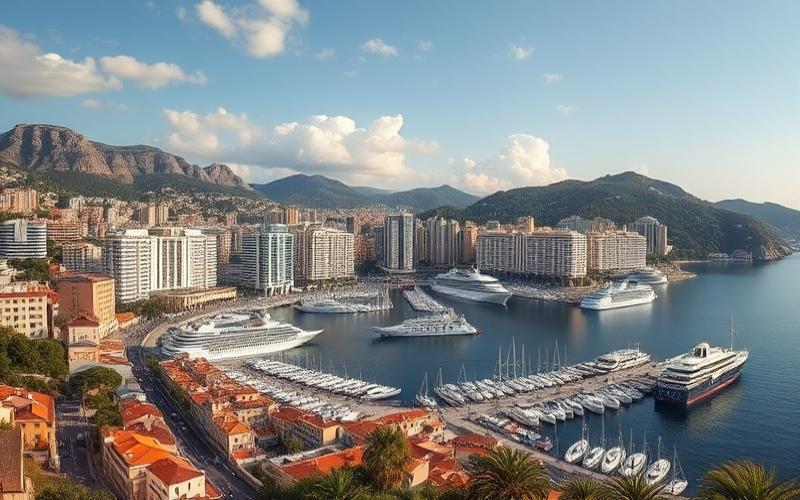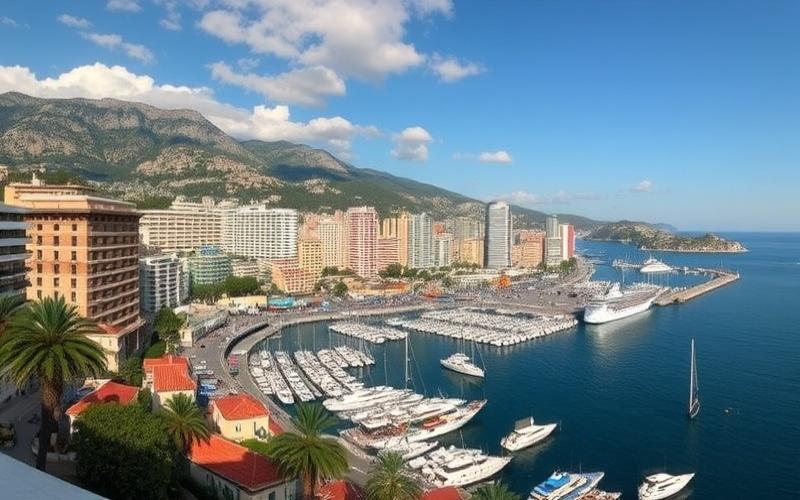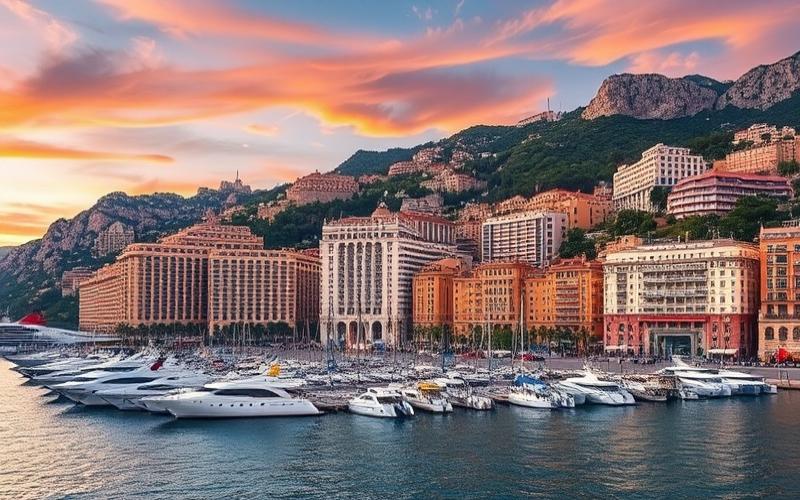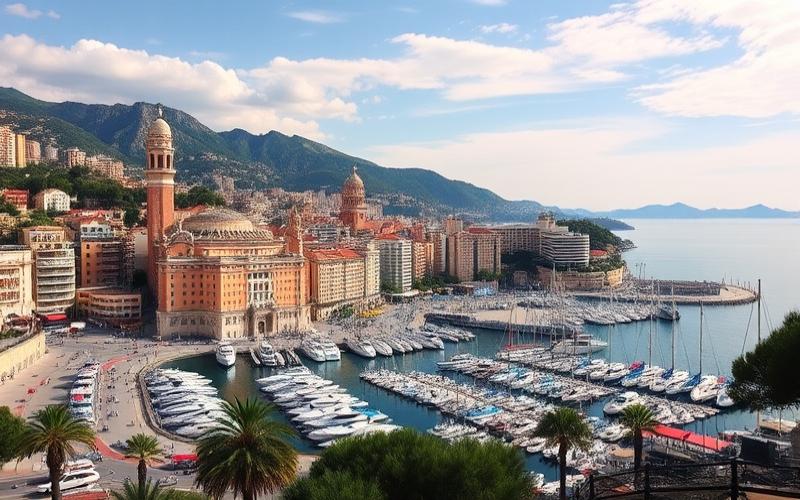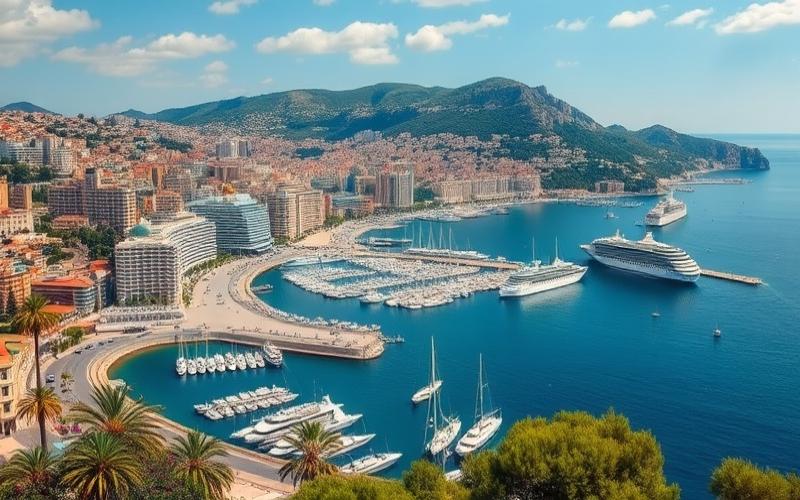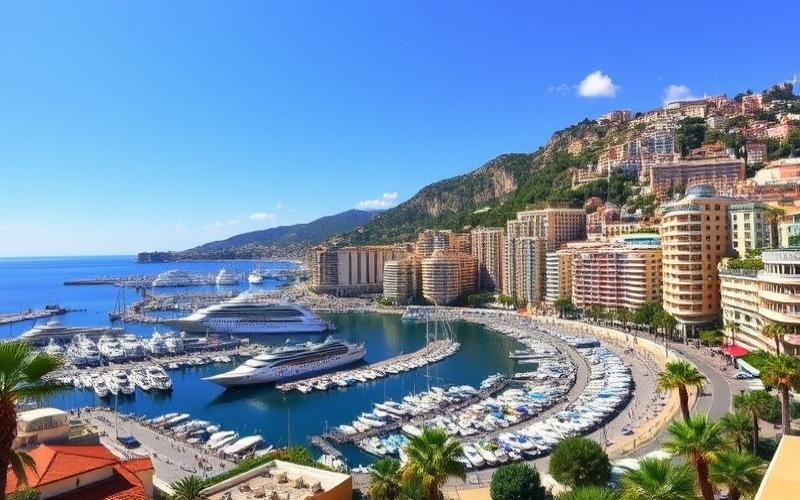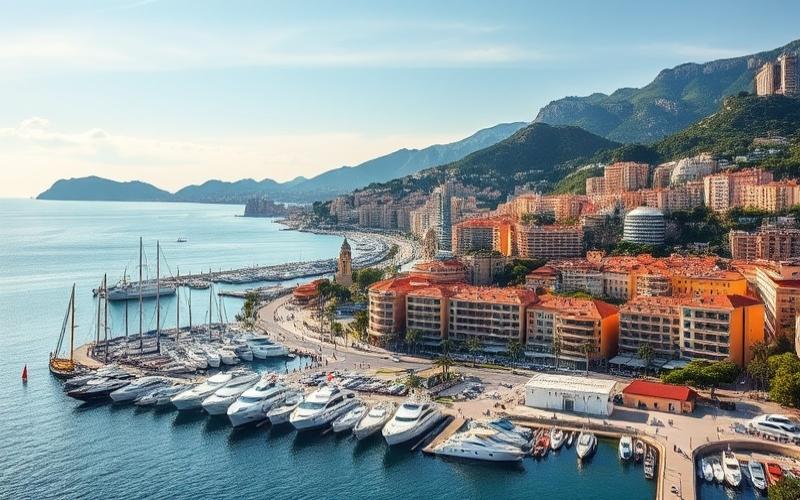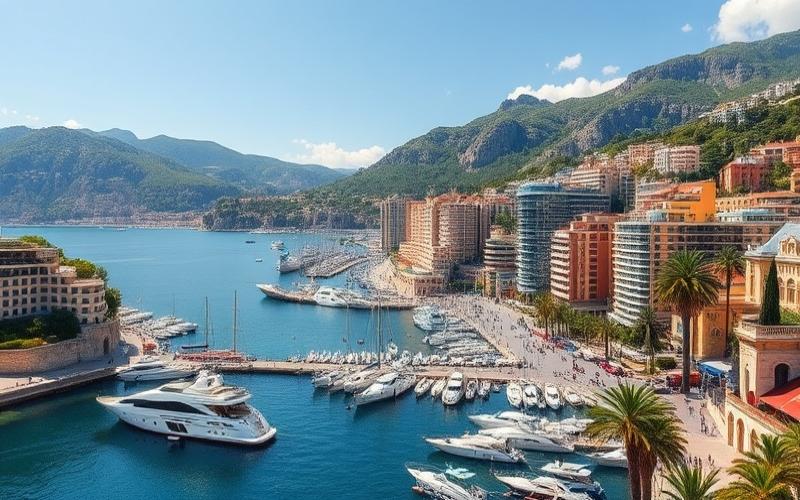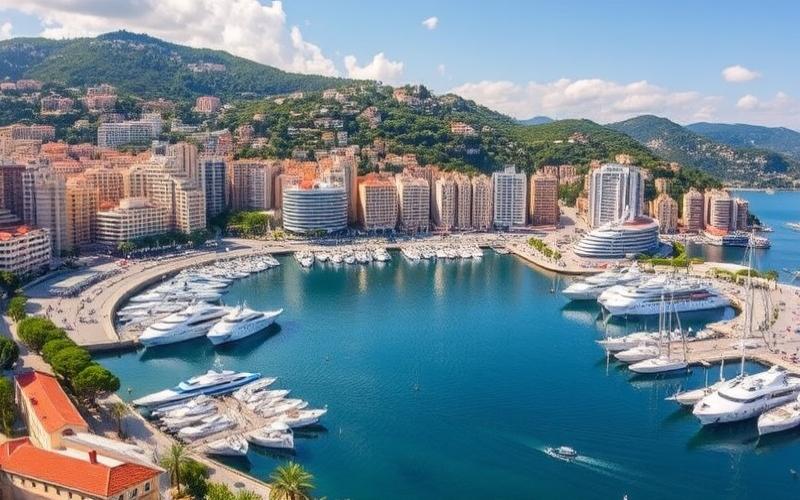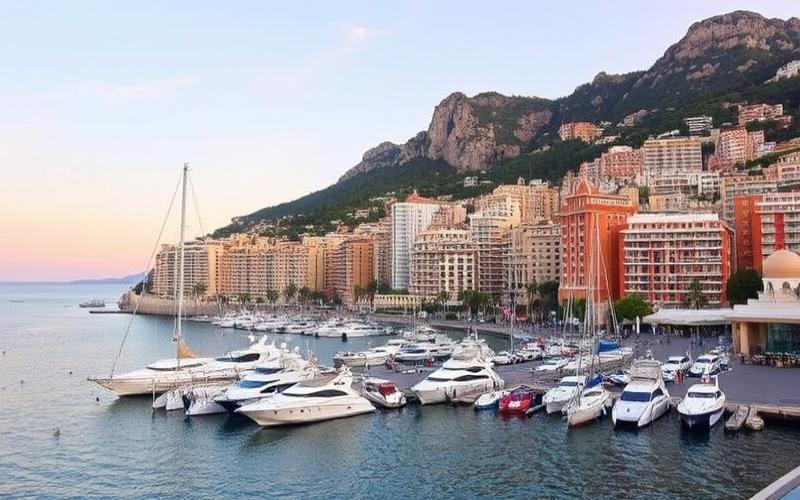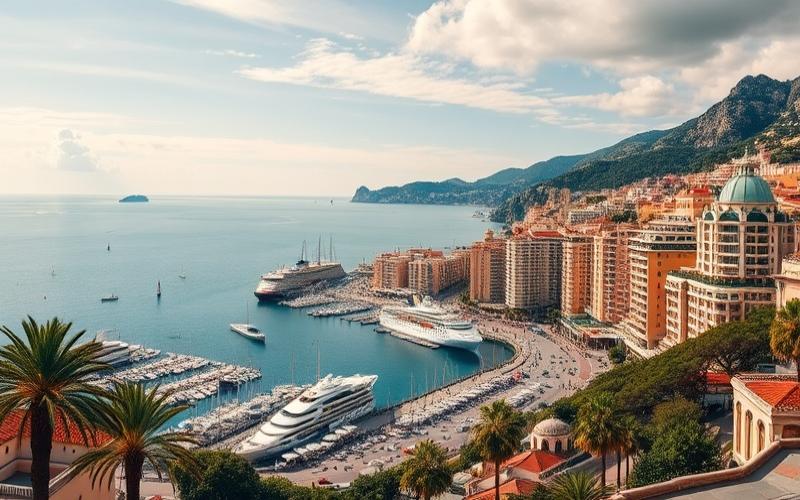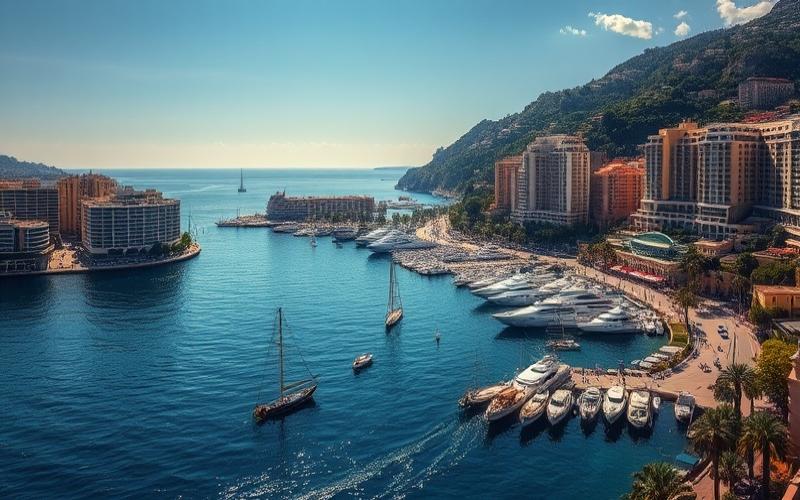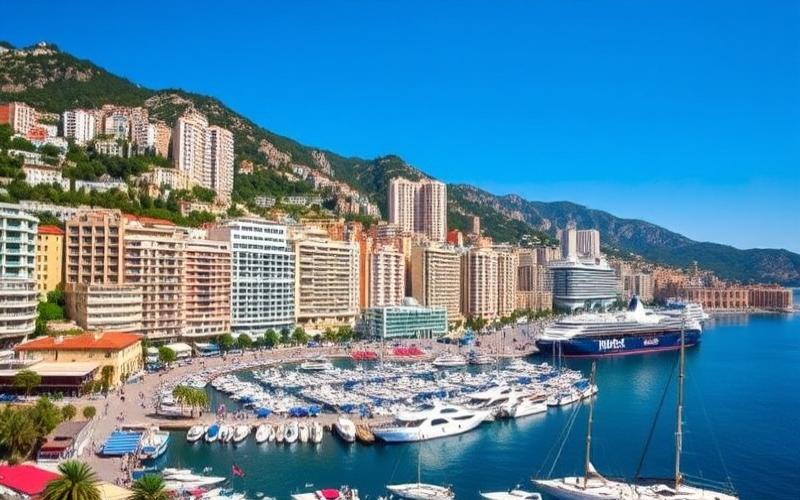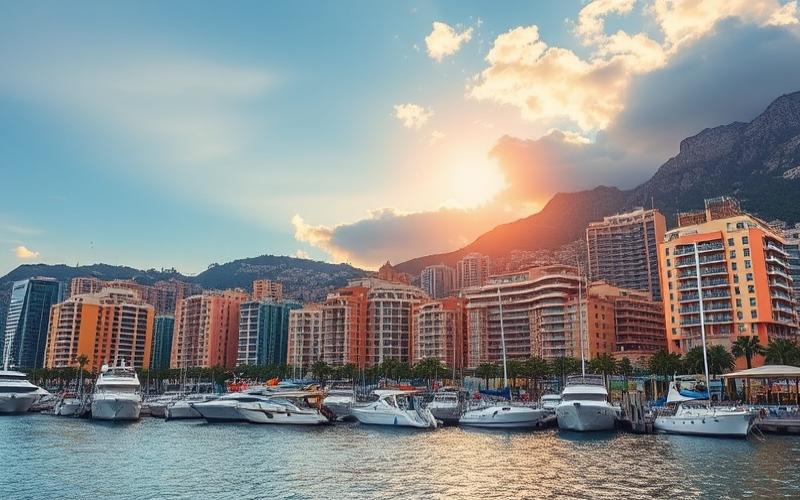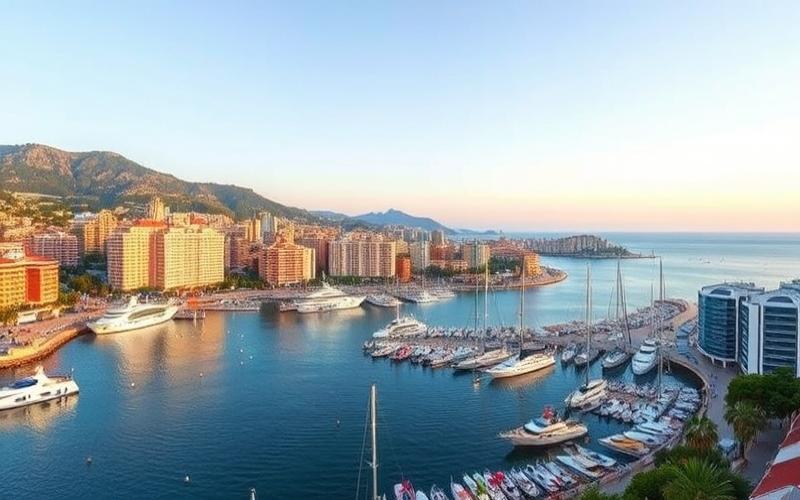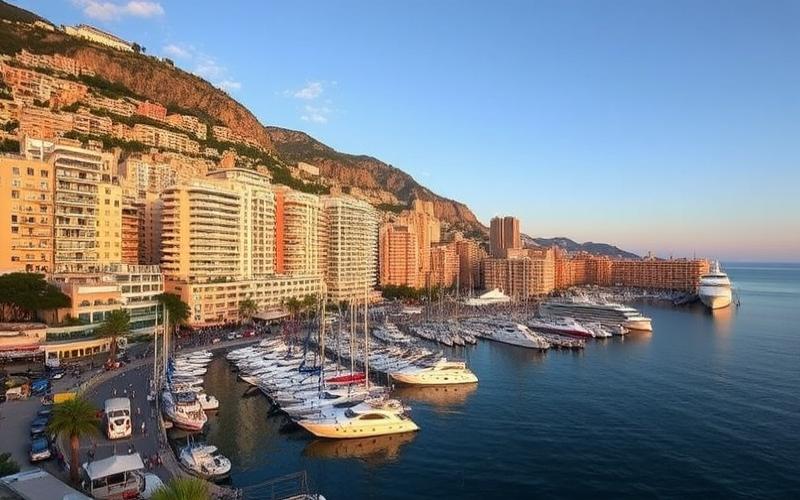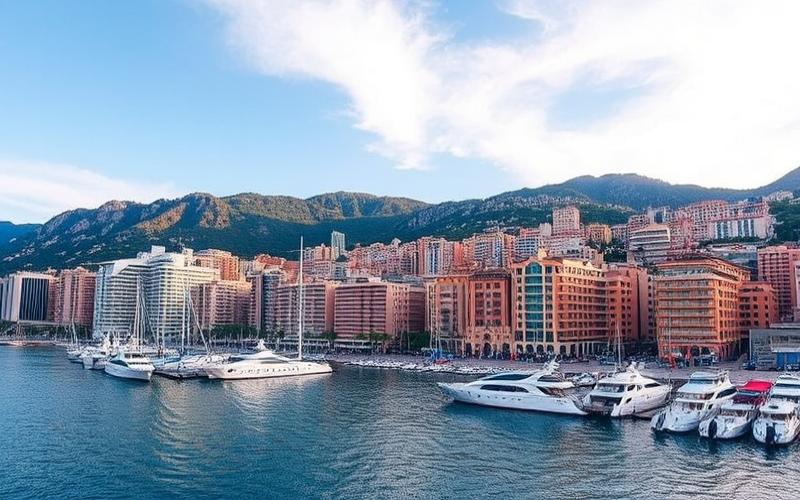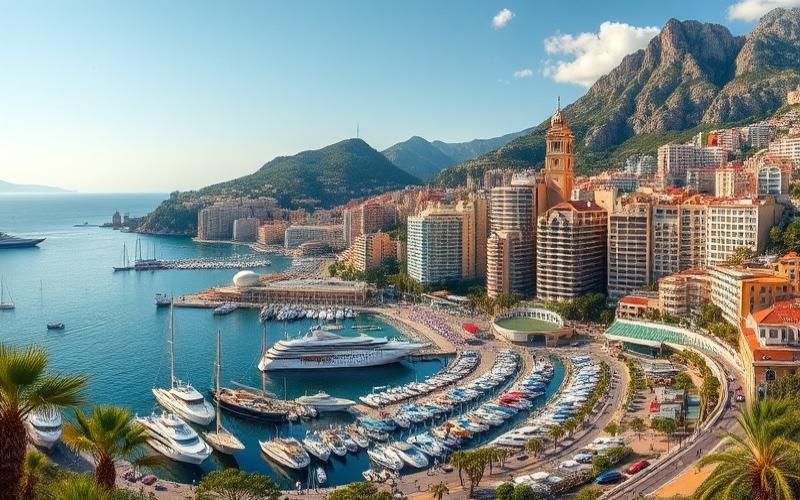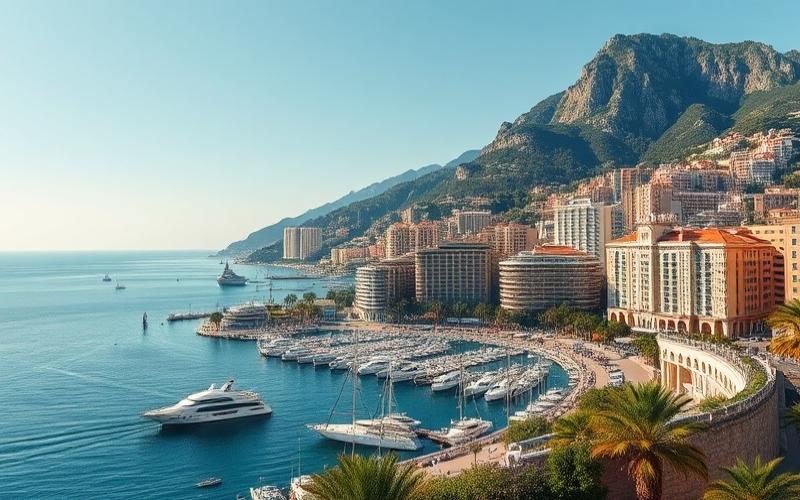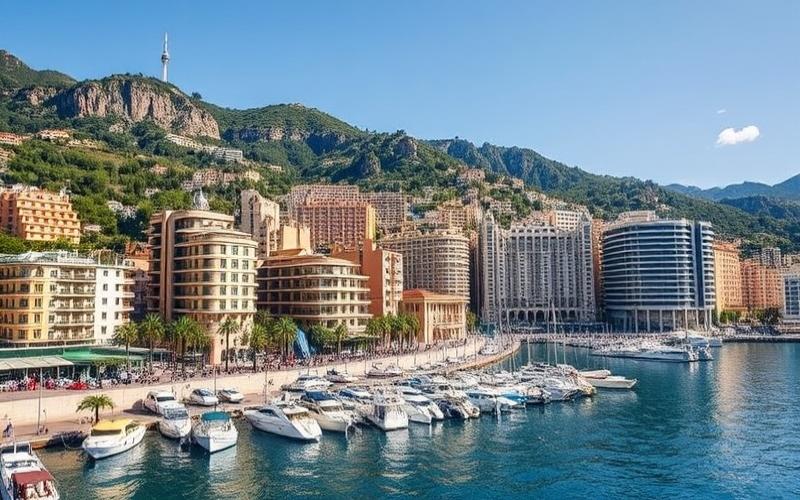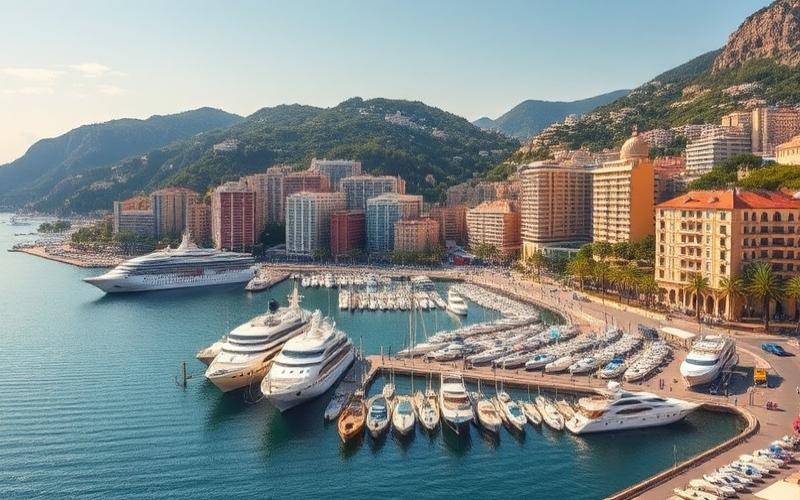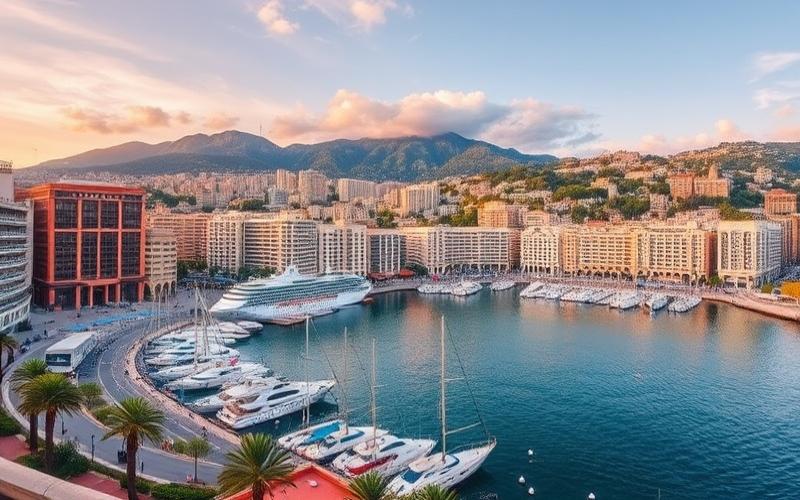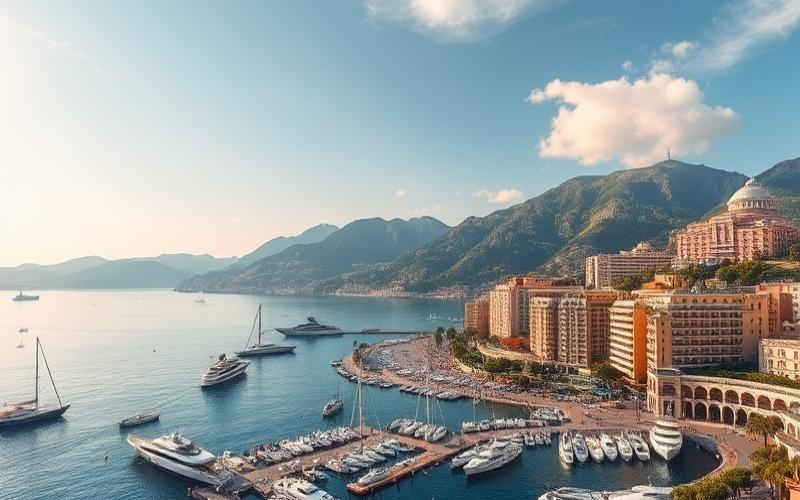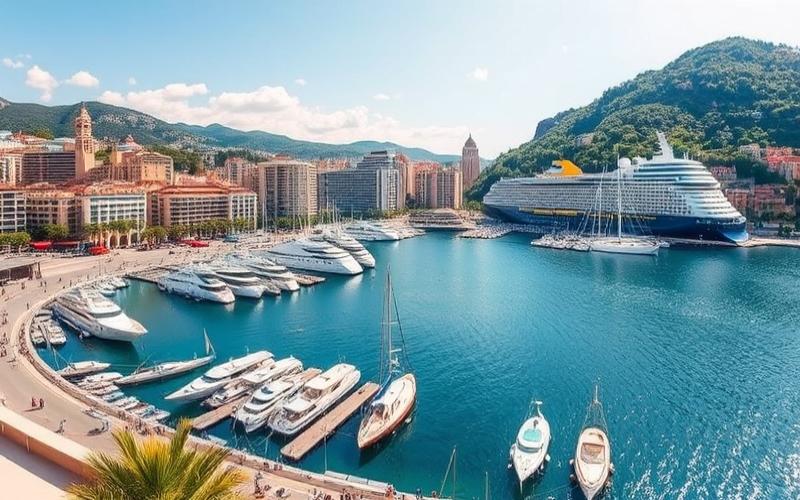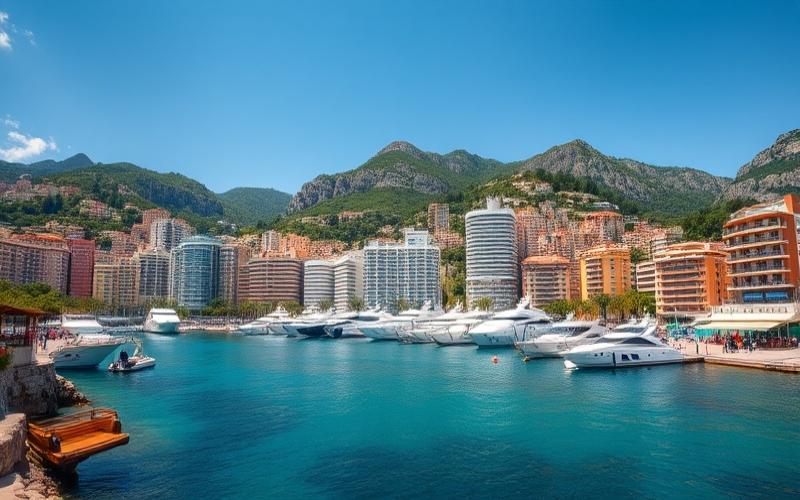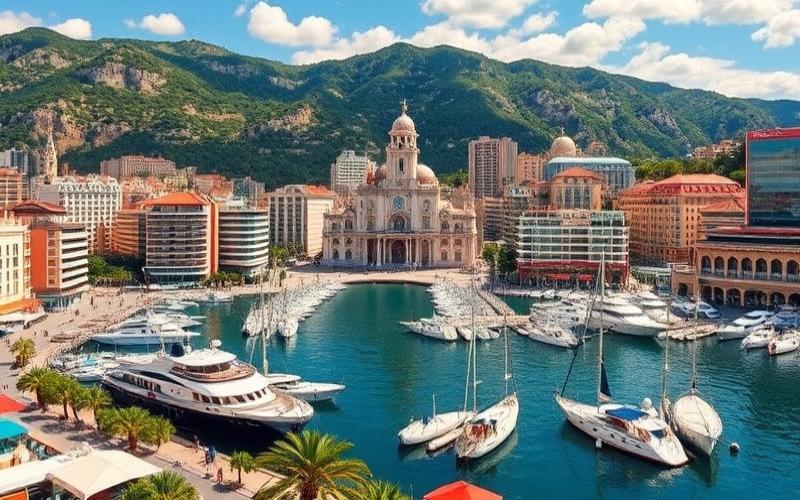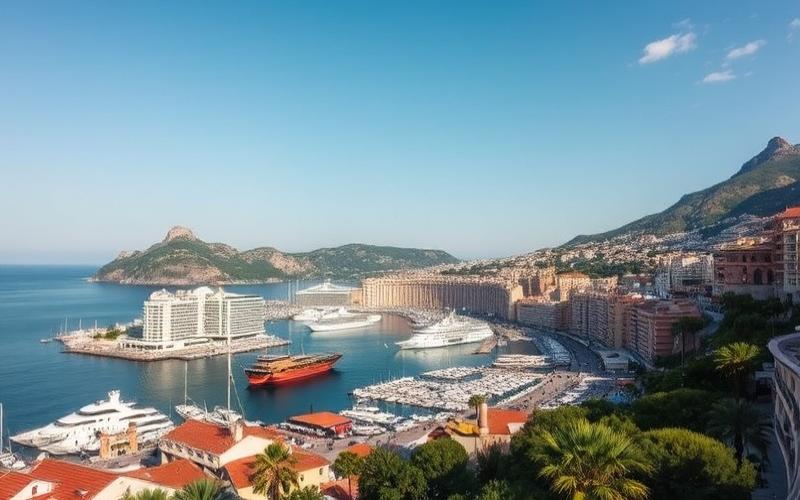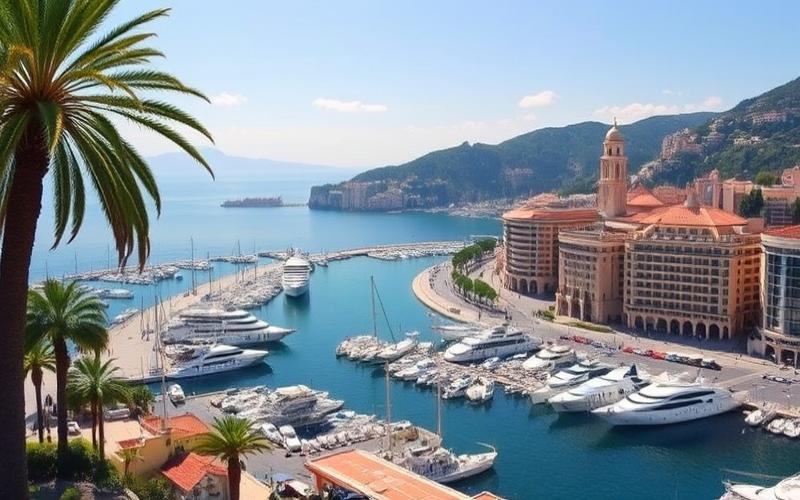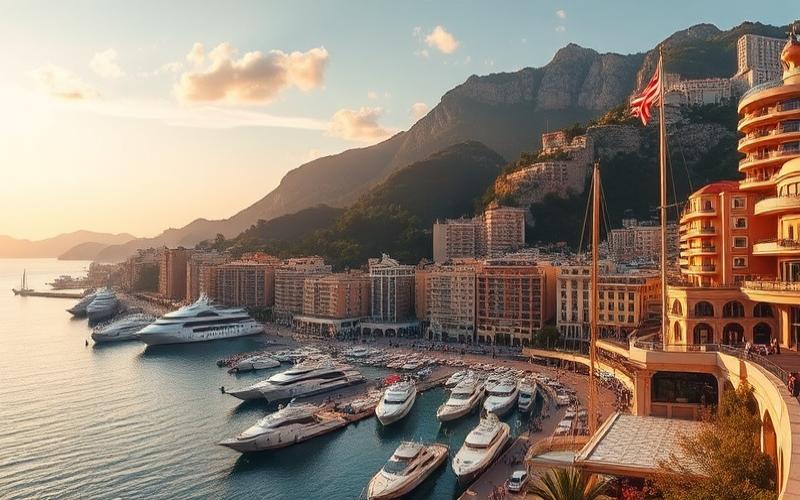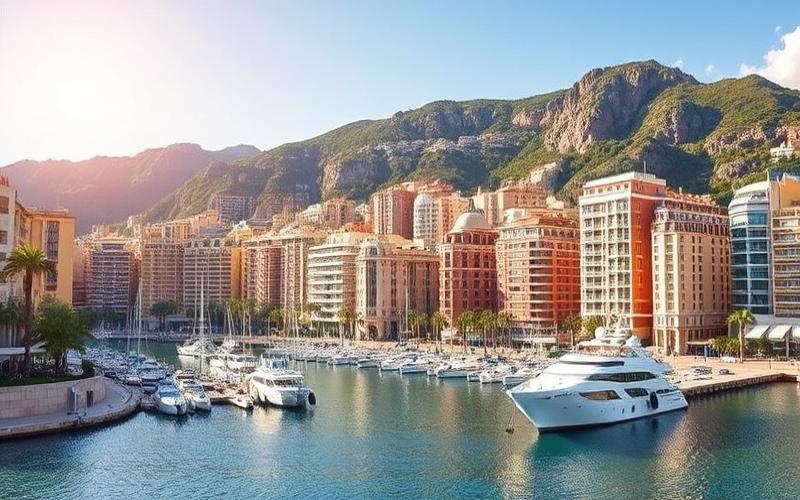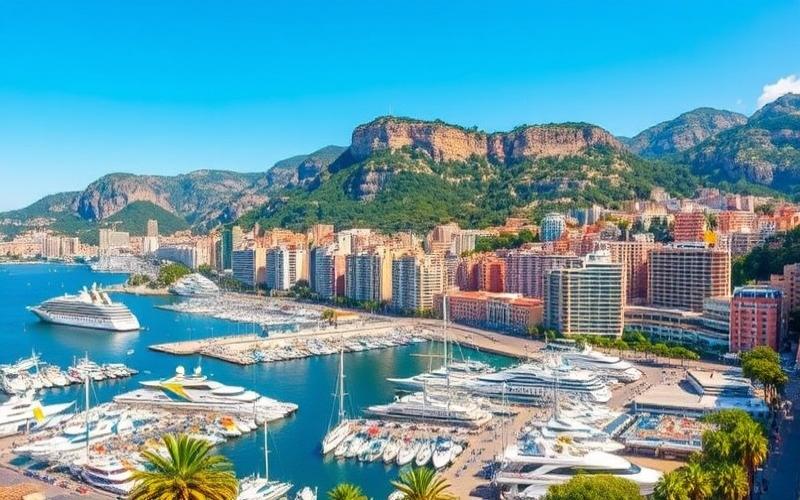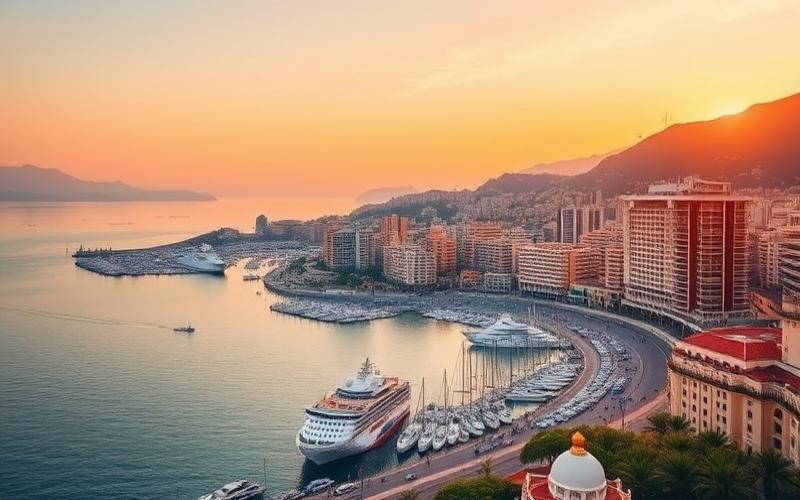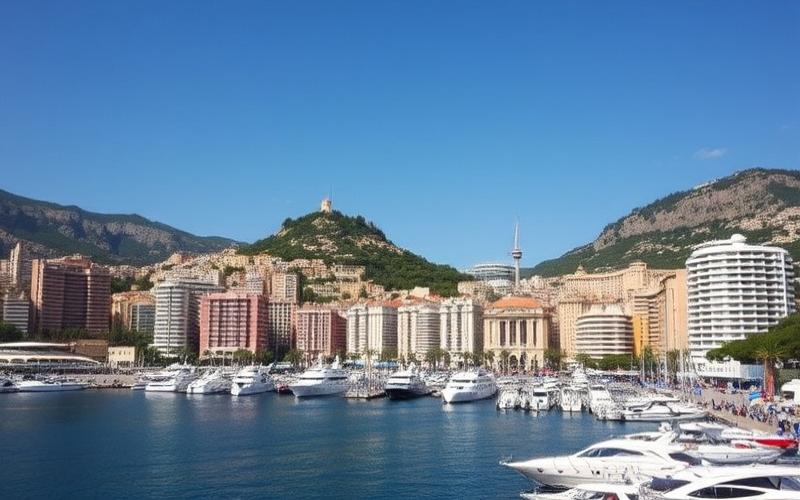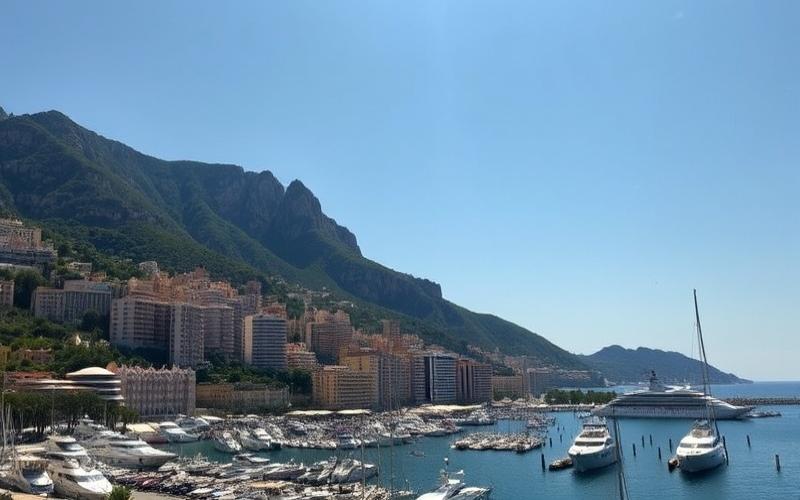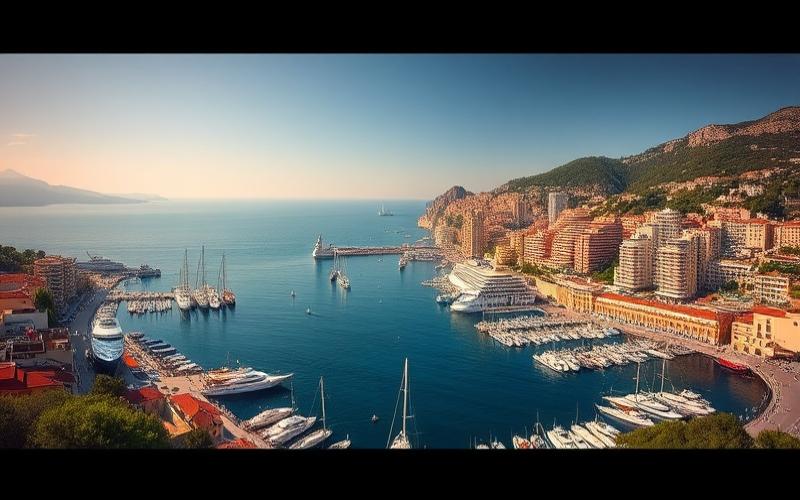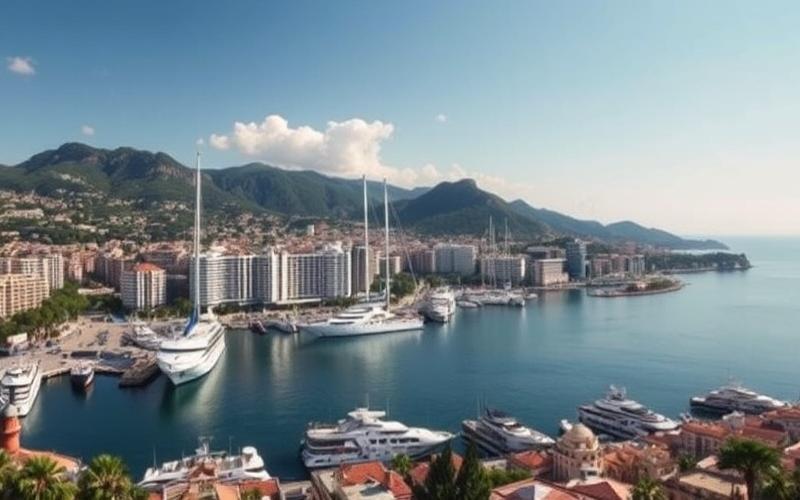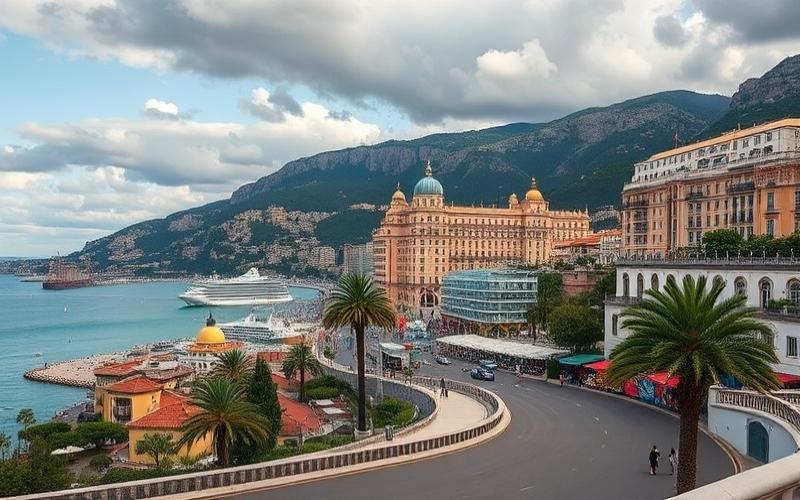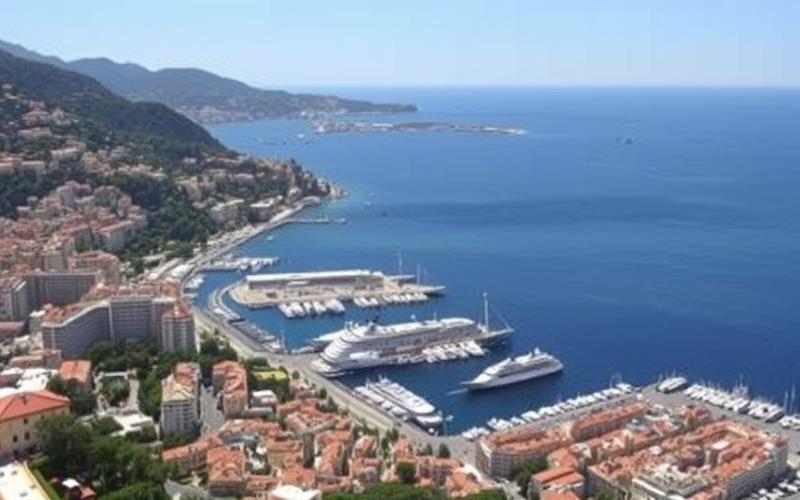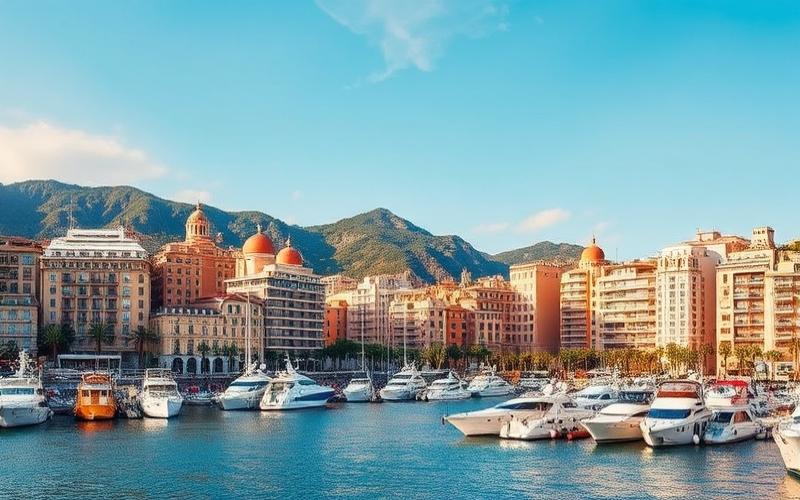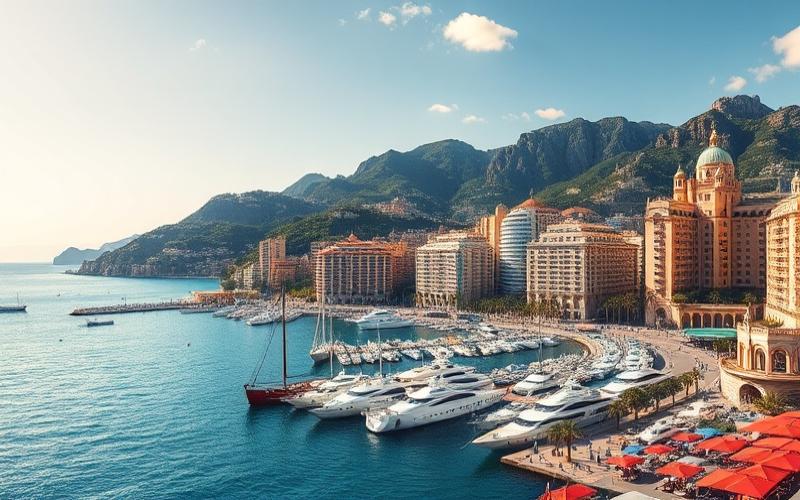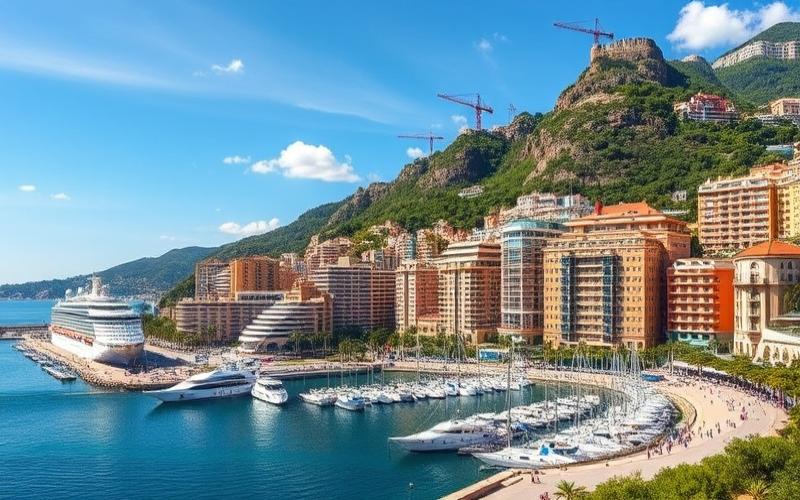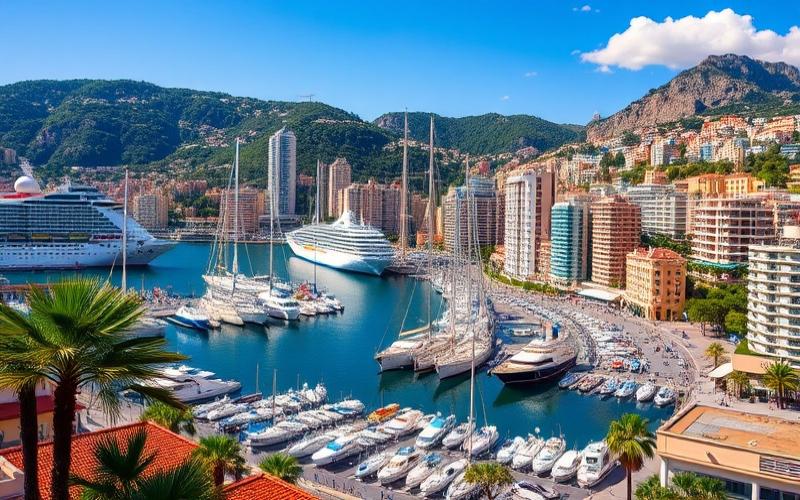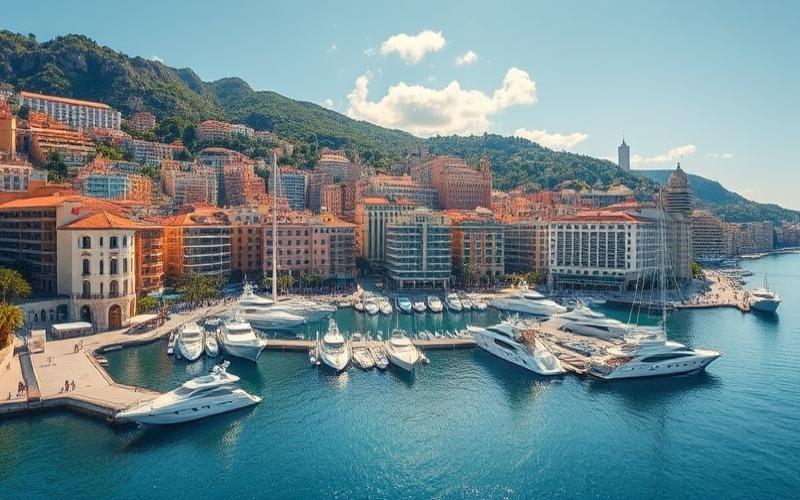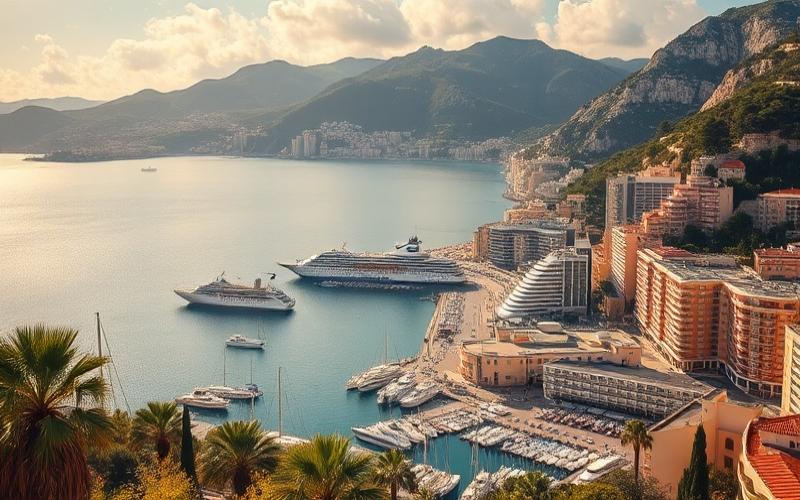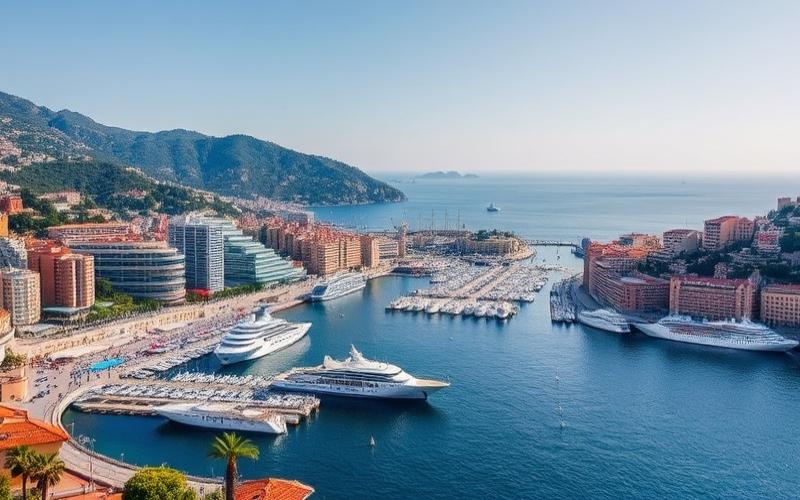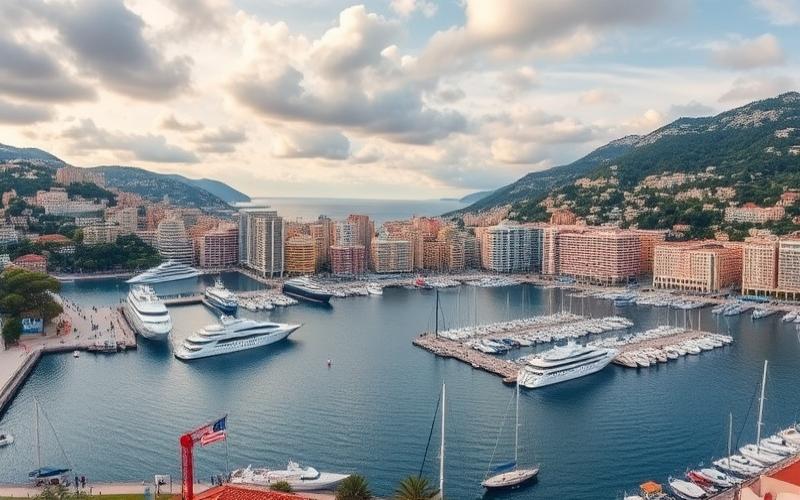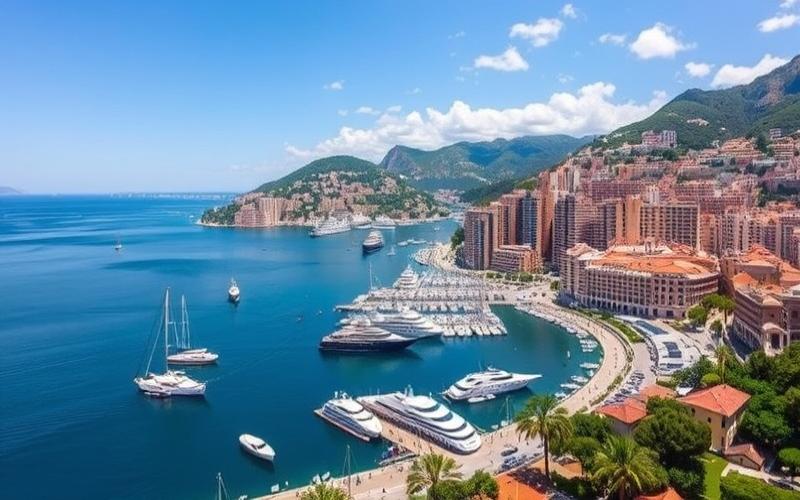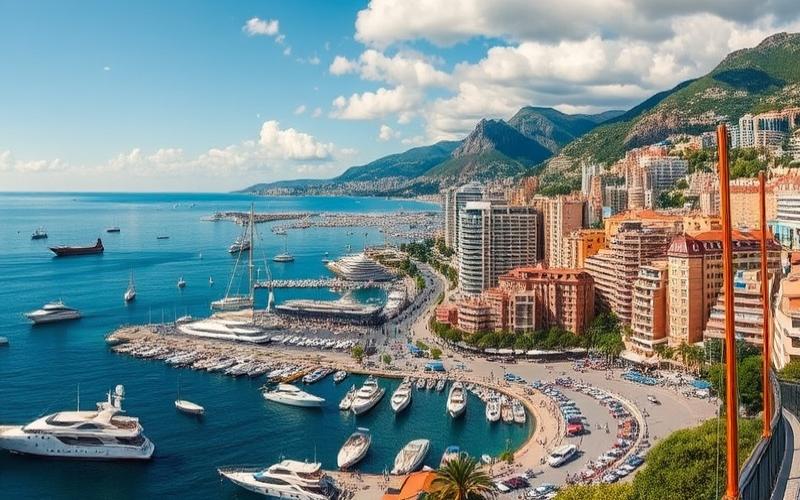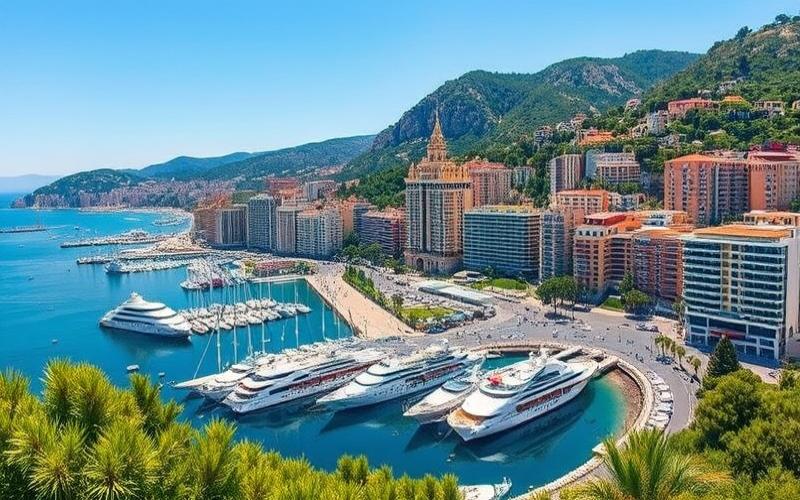
 Published on and written by Cyril Jarnias
Published on and written by Cyril Jarnias
Acquiring a hotel in Monaco, one of the world’s most prestigious destinations, is an ambitious project requiring meticulous preparation. Nestled between the Mediterranean Sea and the majestic Alps, this jewel of the French Riviera offers an exceptional setting combined with a strong economy, attracting numerous investors to the luxury hospitality sector.
Before embarking on this venture, it’s crucial to consider a comprehensive checklist to ensure your investment’s success. From verifying necessary licenses and permits to evaluating the local real estate market dynamics, every detail matters when navigating this unique business environment.
This article will guide you through essential steps and potential pitfalls to transform your dream of buying a hotel into a prosperous reality in the Principality.
Monaco Hotel Market Overview
Size and Structure of Monaco’s Hotel Market
The Monaco hotel market is distinguished by its compact size yet high-end positioning, consistent with the Principality’s limited area and international standing. Monaco features approximately 2,500 rooms distributed across about twenty hotels, including
Good to Know:
The hotel market in Monaco is characterized by a limited yet diverse range of establishments, spanning from luxury hotels to more affordable options, with approximately 40 hotels predominantly concentrated in the five-star category, such as Hôtel de Paris and Fairmont. Recent trends show increased competition with prestigious chains strengthening their presence, such as the dominant SBM group through its historic properties. Tourist demand, influenced by the Formula 1 Grand Prix or Monaco Yacht Show, experiences significant seasonal peaks. Challenges include geographical constraints limiting expansion, while government initiatives, such as harmonizing environmental standards, open new opportunities for innovative and eco-friendly concepts.
Hotel Purchase Guide for Monaco
The hotel real estate market in Monaco is distinguished by an extremely limited supply, some of the world’s highest prices, and consistently strong demand, particularly in the luxury segment. In 2025, growth continues, driven by record residential real estate sales (€2.6 billion in the first quarter of 2025) and remarkable stability even during international volatility. This dynamic also affects the hotel sector: the scarcity of properties for sale and the appeal of event tourism (F1 Grand Prix, Monaco Yacht Show) ensure hotels have strong occupancy and valuation potential.
Current Trends & Forecasts
- Square meter prices exceeding €50,000 for prime properties; upward trend expected for super-prime products.
- Increasing scarcity with few new opportunities: any launch immediately attracts international investors.
- Neighborhoods benefiting from recent real estate developments (Mareterra/Testimonio II) see enhanced attractiveness.
Most Sought-After Neighborhoods for Hotels
| Neighborhood | Main Characteristics |
|---|---|
| Monte-Carlo | Proximity to casinos/opera houses/historic grand hotels; international high-end clientele |
| Larvotto | Waterfront, access to private beaches, new Mareterra development |
| Fontvieille | Modernity, lively port/sporting events |
| La Condamine | Commercial/traditional heart; proximity to F1 circuit |
Key Criteria When Purchasing
- Location: Immediate tourist/event visibility
- Size & Number of Rooms: Balance between capacity/profitability/operational ease
- Services Offered:
- Fine dining restaurant or lounge bar
- Spa or wellness area
- Event/conference rooms
Concrete Example: A boutique hotel in Larvotto with sea views and private spa attracts premium clientele while benefiting from high occupancy during summer season.
Local Regulations & Legal Requirements
- Prior authorization mandatory from the Tourism Department for any hotel opening/takeover.
- Strict compliance with fire safety/accessibility/food hygiene standards.
- Recruitment under Monegasque law; nationality quotas applicable for certain positions.
Brief list of mandatory procedures:
- Official application to the Princely Government
- Urban planning/safety compliance validation
- Specific approval if ancillary services (spa/restaurant)
Hotel Financial Evaluation
“Analysis must incorporate average revenue per available room (RevPAR), annual average occupancy rate as well as fixed/variable costs…”
Essential points:
- Revenue: Room nights + dining + ancillary services + event privatizations;
- Expenses: Salaries (+ high social contributions), energy/water/Monaco-specific taxes;
Simplified Table:
| Financial Indicator | Sample Annual Value |
|---|---|
| RevPAR | €420 |
| Occupancy Rate | 80% |
| Average Net Margin | Between 18% and 27% |
Practical Advice: Hiring a local accountant familiar with Monegasque fiscal/labor specifics is highly recommended.
Financing & Tax Incentives
Available options:
- Local bank credit possible through partner institutions subject to strong personal contribution/experienced investor;
- Financial structures sometimes including institutional partnerships or international family offices;
Tax advantages:
Hotel companies generating over 75% of revenue outside the Principality potentially benefit from partial ISB tax exemption on certain income – a scheme reserved for genuinely international structures.
To Go Further:
Good to Know:
The hotel real estate market in Monaco is very dynamic, with growing demand and constantly rising prices, particularly in prestigious neighborhoods like Monte-Carlo and La Condamine. When purchasing a hotel, it’s crucial to consider location, size and number of rooms, as well as services offered, such as spa or concierge services, to stand out in this luxury market. Investors must be aware of strict local regulations and legal requirements regarding hotel management, in addition to carefully evaluating potential revenue and operating costs of an establishment. Financial analysis, assisted by local advisors, and verification of the establishment’s history are essential. Innovative financing options and certain tax incentives can be explored to optimize investment. For example, Crédit Agricole offers solutions tailored to commercial purchases in Monaco. For assistance, contacting the Monaco Association of Financial Activities can provide valuable resources.
Legal Aspects and Hospitality Due Diligence
Legal Obligations When Purchasing a Hotel in Monaco
Acquiring a hotel in the Principality of Monaco involves complying with several mandatory legal obligations, concerning both real estate ownership and commercial operation.
Real Estate Ownership Regulations and Hotel Licenses:
- Only individuals or legal entities having received prior authorization can acquire commercial real estate in Monaco intended for hospitality use.
- Hotel operation requires a specific license issued by Monegasque authorities, with strict requirements regarding property destination and compliance with local standards.
- The protective commercial lease status applies if the operator is a merchant, has operated a business for at least three consecutive years, and maintains an independent clientele.
Due Diligence Process:
Essential Checklist:
- Verification of property titles to ensure no encumbrances or mortgages burden the property.
- Thorough review of ongoing contracts, particularly those related to hotel franchises or existing commercial partnerships.
- Detailed examination of financial obligations: bank debts, potential disputes, taxes due, or unpaid social charges.
- Analysis of lease status, particularly to verify if the commercial lease benefits from the protective regime under Monegasque law n° 490.
| Step | Key Points |
|---|---|
| Title Verification | Title authenticity; absence of mortgages/encumbrances |
| Contracts | Franchise/hotel analysis; termination conditions |
| Obligations | Existing debts; social/fiscal liabilities |
Tax Implications:
Applicable taxation will primarily depend on legal status (local or foreign company) and may include transfer duties on real estate purchase as well as applicable VAT according to services provided.
Quality & Safety Standards:
Regulatory List:
- Strict compliance with local fire safety and accessibility standards for people with reduced mobility.
- Compliance with health standards imposed on public establishments.
Staff Responsibilities – Labor Law:
Mandatory List:
- Strict application of Monegasque labor law (written contract mandatory).
- Compliance with applicable collective bargaining agreements in the local hotel sector.
- Obligation to pay all social contributions to competent organizations.
Ensuring each step undergoes thorough analysis by a lawyer specialized in Monegasque real estate and commercial law is essential.
Collaboration with an accountant familiar with local taxation along with an experienced hospitality professional guarantees not only legal compliance but also seamless operational transition.
Good to Know:
When purchasing a hotel in Monaco, it’s crucial to understand your legal obligations to ensure compliance with local laws, particularly regarding real estate ownership and operating licenses. A rigorous due diligence process is recommended, including verification of property titles, franchise contracts, as well as detection of any existing liabilities or financial obligations. Also consider Monaco-specific tax implications, such as the absence of income tax, and ensure the establishment meets required quality and safety standards. Regarding labor law, you’ll be responsible for complying with legislation applying to staff, ensuring correct application of collective bargaining agreements. To navigate this complex environment, it’s wise to seek guidance from specialized legal counsel and collaborate with experienced hospitality professionals to avoid any legal pitfalls.
Impact of Tourism Statistics on Hotel Real Estate
Tourism statistics play a decisive role in hotel real estate investment decisions in Monaco. Recent data reveals positive dynamics, with a three-point increase in hotel occupancy rates and a 5% rise in average room rates in 2024 compared to the previous year. This growth is supported by the recovery of business tourism and diversification of source markets, including the United States and Middle East.
Investors carefully analyze these trends to anticipate profitability potential. A continuous rise in occupancy rates indicates not only strong demand but also an environment favorable to rate increases, directly translating to better margins for hotel operators.
Seasonality is also a key factor in planning and purchasing a hotel in Monaco. The summer season traditionally sees significant occupancy peaks due to mass vacationer returns, while the rest of the year heavily depends on the local event calendar (conferences, international exhibitions). Annual tourist flows thus influence pricing strategy: maximizing revenue during high season while maintaining satisfactory minimum occupancy during off-season through business or international clientele.
Recent Statistical Data on Monaco Hospitality (as of January 1, 2025):
| Category | Number of Hotels | Total Number of Rooms |
| Total | 57 | 2,075 |
| 1 Star | 1 | 16 |
| 2 Stars | 7 | 187 |
| 3 Stars | 23 | 941 |
| 4 Stars | 8 | 509 |
| 5 Stars | 4 | 127 |
| Unclassified | 14 | 295 |
Some Recent Illustrative Figures:
- Rising tourist arrivals: +28%, from 172,038 to 220,053 visitors in a recent period.
- Average stay duration: Notable increase (+9.2%), allowing growth in total room nights consumed.
- Monthly occupancy rate: Nearly 30% in January/February; up to 45% by March during first major spring events.
Direct impact on financial forecasts is major:
- Higher occupancy enables potential buyers to adjust their business plans with fewer off-season under-occupancy risks.
- Positive evolution in average room rate provides more levers to optimize their revenue per available room (RevPAR).
Operational management is consequently affected: it becomes essential for potential buyers to adapt their HR strategy (temporary recruitment during peaks), refine commercial policy according to event calendar, and potentially reposition their establishment according to dominant expected clientele each season (leisure vs business).
Major External Factors:
International events organized in Monaco – such as F1 Grand Prix, Yacht Show, or medical congresses – generate several temporary but significant peaks in local hotel attendance annually. These events not only boost average daily rates but can temporarily push rates well beyond usual levels; they therefore encourage some investors to prioritize either purchase or high-end renovation to capture this occasional premium clientele while securing annual revenues.
“The objective is maintaining momentum on long-haul destinations Particular attention will be paid to European visitors outside peak attendance periods”
In conclusion, statistical trends provide investors with precise benchmarks to calibrate investments, plan commercial strategies, and adapt budget forecasts facing structural or cyclical variations specific to the Monegasque market.
Good to Know:
Monaco’s tourism statistics play a crucial role in hotel real estate investment decisions. With approximately 370,000 annual visitors, understanding tourist flows and their seasonality is essential for optimizing hotel purchase and management. For example, attendance peaks during summer months and international events, like the Formula 1 Grand Prix, lead to increased accommodation demand, thus influencing potential profitability and pricing strategies. Investors must also consider high occupancy rates averaging around 70% annually, representing an attractive opportunity to maximize revenue. Recent data shows increased visitation from Chinese and American tourists, a factor that could guide specific amenities in future hotel projects to meet international visitor expectations. Opportunities to host distinctive events, such as the Monaco Yacht Show, further energize the market, making strategic planning essential to capitalize on these seasonal influxes.
Disclaimer: The information provided on this website is for informational purposes only and does not constitute financial, legal, or professional advice. We encourage you to consult qualified experts before making any investment, real estate, or expatriation decisions. Although we strive to maintain up-to-date and accurate information, we do not guarantee the completeness, accuracy, or timeliness of the proposed content. As investment and expatriation involve risks, we disclaim any liability for potential losses or damages arising from the use of this site. Your use of this site confirms your acceptance of these terms and your understanding of the associated risks.

